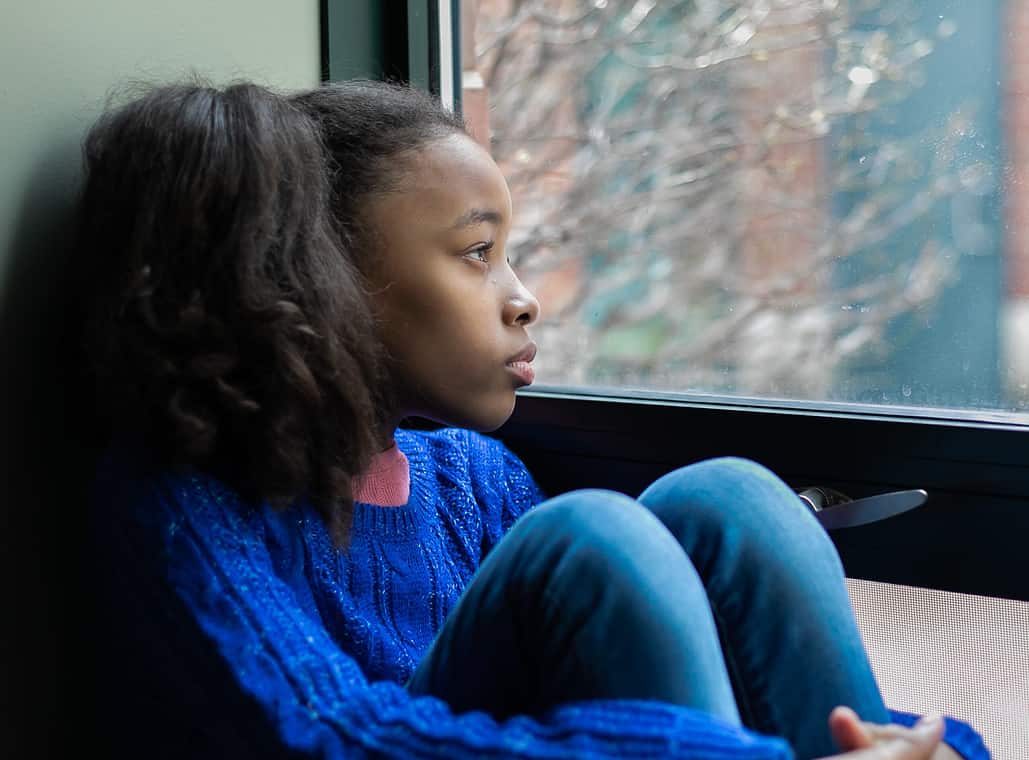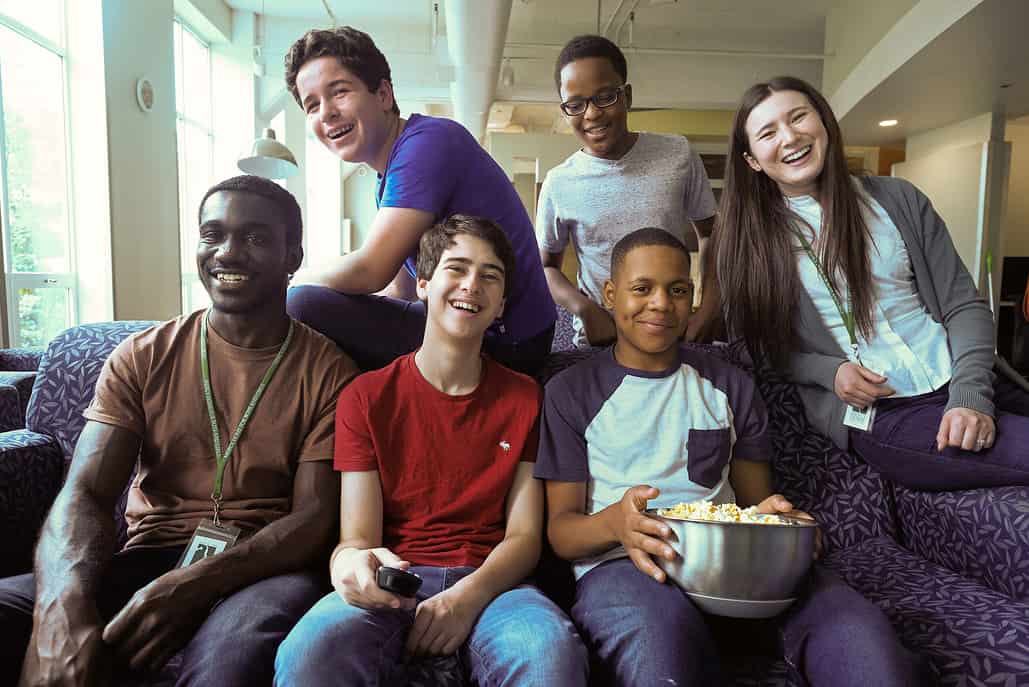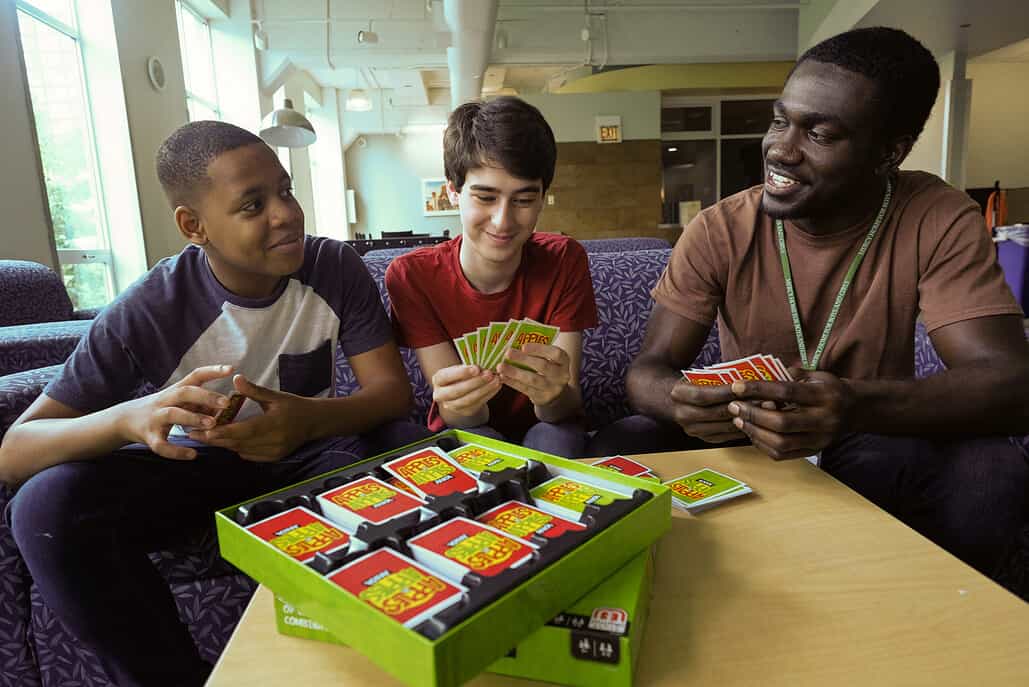Youth Help Build Homes for Chicago Residents in Need
At Mercy Home, we stress the importance of giving back to the community. Some of our young men spent a...
June 26, 2025
August 15, 2023
People are lonelier today than ever before—and it’s taking a toll on people’s health.
Like his predecessors who warned of the impact of smoking, substance abuse, or obesity, U.S. Surgeon General Dr. Vivek H. Hurthy released a landmark report this year on “Our Epidemic of Loneliness and Isolation.” While Covid-19 is commonly, and correctly cited as a major contributor to the problem, research has shown that people were feeling alone and disconnected from support systems even before the pandemic.

While other health threats have historically garnered more press coverage, researchers have been quietly looking into trends around loneliness for years. In 2021, for example, the Cigna Group followed up on its pre-pandemic studies and reported that 58 percent of American adults are lonely.
The results of this loneliness and disconnection, research suggests, can be deadly.
Hurthy’s report notes that it is associated with a greater risk of cardiovascular disease, dementia, stroke, and premature death. Murthy reported that being socially disconnected has health risks similar to smoking 15 cigarettes a day and is even riskier than obesity or physical inactivity. Studies support the connection between loneliness and mental health, noting an increased risk of depression and anxiety, and strong correlation between loneliness and other mental health challenges.
Though loneliness remains a widespread problem in our country, it doesn’t impact all groups equally. The Cigna Group study found that racial minorities are more likely to report feeling lonely—75 percent of Hispanic adults and 68 percent of Black adults are classified as lonely. Those with lower incomes are also more likely to be lonely. Sixty-three percent of people earning under $50,000 are lonely. Young adults are also more likely to report feeling lonely.
Significantly, loneliness often begins long before adulthood and children who grow up feeling lonely are more likely to be lonely as adults.
So how does Mercy Home address loneliness in our young people who may come to us without having experienced healthy social interactions and relationships? The first step is identifying loneliness and making sure our kids are connected.

Edward Meredith, a therapist, shared some insights. Some of the signs we look for include:
—Spending a lot of time in their rooms, isolated and disengaged from program structure and engagement.
—Being quiet and keeping largely to themselves
—Not wanting to spend time developing relationships with people because it’s not worth their time and investment.
—Exhibiting social anxiety and nervousness about relationship building
—Not wanting to take part in many activities
To combat the problem, our coworkers work tirelessly to help our kids develop healthy social interactions and build a good sense of community.
“We create a communal environment,” Meredith said. “We make sure [the kids] are engaged, doing lots of activities, and a lot of relationship building. Everything we do in the program and every interaction is [focused on] relationship building with the kids.”
Building relationships takes time and effort, and it starts with establishing trust. Many of our kids have not been around many people they can trust or count on. They may not have experienced compliments, praise, or encouragement. But our coworkers work with our kids to develop healthy and honest relationships.

One way they do this is by giving them praise and recognition when they see they are improving personally, socially, or academically.
“We give them a lot of praise, praising youth every day,” Meredith said. “We help the youth recognize their own strengths. Doing this gives the youth a sense of support and helps them grow into a better person.”
Because having effective communication skills is critical in the real world, our coworkers have the kids roleplay different social situations, so they can identify and practice communicating effectively.
And the kids who are more social than others are coached by their youth care workers to encourage peers who still feel alone.
“We try to influence some of our [young people] here who are really socially engaged and who love conversing with others, help [their peers who are] lonely demonstrate great peer leadership, and get their peers more involved,” Meredith said. “It means more coming from their peers than us.”
If our kids are struggling to make friends, Mercy Home will enroll them in extracurricular activities to meet new people, while learning something new and engaging.
“By enrolling them in extracurricular activities, we hope to increase the number of social interactions, so they can build friendships and mentorships with other people,” Meredith said.
Mercy Home strives to provide our kids with the necessary tools and resources for them to build strong relationships that will last a lifetime. At the Home we create a welcoming environment for them to make friends and provide them with helpful tips to maintain healthy relationships, in efforts to combat loneliness and isolation.
At Mercy Home, we stress the importance of giving back to the community. Some of our young men spent a...
June 26, 2025
In the city of “Big Shoulders,” there are many young people who don’t have a positive role model or a...
June 26, 2025
When eight of Mercy Home’s young people, accompanied by four coworkers, embarked on a 10-day journey to County Cork, Ireland,...
June 26, 2025
Comments